CBD vs. CBG vs. THC-A: Understanding the Cannabinoids in Your Cannabis Seeds
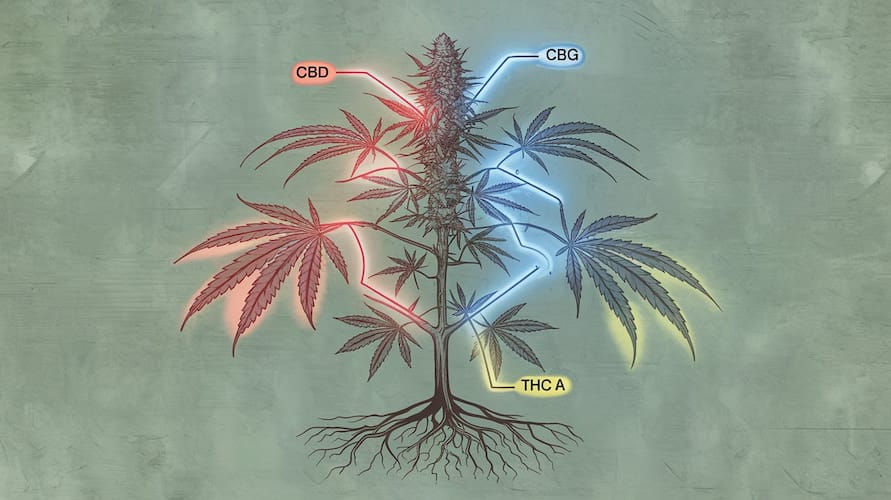
Cannabis isn’t just about getting high. It’s about a mix of cannabinoids, each one affecting our body in unique ways. Three of the biggest players—CBD, CBG, and THC-A—each offer unique benefits, whether it’s for calming anxiety, relieving pain, or supporting neuroprotective health. But not all cannabinoids are created equal, so here’s a breakdown of what you should know.
What Is Cannabidiol (CBD)?
CBD has made a name for itself as one of the most widely known and researched cannabinoids. It’s non-psychoactive, so it won’t get you high, which makes it appealing for anyone looking for relief without the mental buzz.
How CBD Works: CBD interacts with the endocannabinoid system (ECS), which is a body-wide system helping to keep balance in mood, pain, and immunity. CBD binds indirectly to ECS receptors, encouraging relaxation without causing any major mind-altering effects.
Top Benefits of CBD:
- Anxiety Relief: By interacting with serotonin receptors, CBD can reduce anxiety and even help with social stress.
- Pain and Inflammation Management: CBD’s anti-inflammatory properties can help relieve chronic pain, which is why many people with arthritis turn to CBD.
- Neuroprotective Potential: Early studies suggest CBD could have protective effects on brain health, making it a candidate for future treatments for neurodegenerative diseases.
- Anti-Seizure Properties: CBD is known to reduce seizures, especially in forms of epilepsy resistant to conventional treatment.
Forms and Consumption: CBD can be found in various forms, like tinctures, capsules, topicals, and vape products. Each form has its own absorption rate, with sublingual tinctures being a favorite for fast effects.
Potential Side Effects: Drowsiness, dry mouth, or light nausea can happen for some users, especially at higher doses. Most effects are mild, though, and often ease with adjusted dosage.
What Is Cannabigerol (CBG)?
Known as the “stem cell” or “mother” cannabinoid, CBG is the raw form that can transform into THC, CBD, or CBC as the cannabis plant matures. Although it’s lesser-known than CBD, early research shows CBG offers a unique set of therapeutic properties.
How CBG Works: CBG binds directly to ECS receptors, CB1 and CB2, giving it a more direct effect on pain, appetite, and inflammation.
Top Benefits of CBG:
- Antibacterial Properties: CBG has shown promise against antibiotic-resistant bacteria like MRSA, which could make it useful in the future as an antibacterial.
- Appetite Stimulation: Unlike THC, CBG can stimulate appetite without the high, which can benefit anyone dealing with a loss of appetite, like patients undergoing cancer treatments.
- Pain and Inflammation Relief: Research suggests CBG may be effective at reducing pain and inflammation, especially in gut-related conditions like inflammatory bowel disease (IBD).
- Neuroprotective Potential: Some research indicates that CBG may help protect neurons, which could be useful for neurodegenerative conditions.
Forms and Consumption: CBG products are available as tinctures, capsules, and, increasingly, in topicals and edibles.
Potential Side Effects: CBG’s side effects are less documented, but some users report mild dry mouth or drowsiness.
What Is Tetrahydrocannabinolic Acid (THC-A)?
THC-A is essentially THC in its raw, non-psychoactive form. Before being heated, THC-A doesn’t create the “high” associated with THC. When cannabis is smoked or heated, THC-A converts to THC, which then has psychoactive effects.
How THC-A Works: THC-A doesn’t bind to the ECS in the same way as THC, so it doesn’t cause a high. Instead, it has an indirect interaction with inflammation and pain receptors.
Top Benefits of THC-A:
- Anti-Inflammatory and Pain Relief: THC-A is used by people looking to ease inflammation and pain without the psychoactive effects of THC.
- Anti-Nausea: Some research shows THC-A might reduce nausea, making it useful for patients in treatment.
- Neuroprotective Potential: Preclinical research suggests THC-A might have benefits for brain health and protecting cells from damage.
Forms and Consumption: Many people consume THC-A by juicing raw cannabis leaves or using THC-A-specific tinctures and capsules.
Potential Side Effects: While it generally doesn’t have psychoactive effects, some users report mild side effects like stomach upset or lightheadedness.
The Entourage Effect: When Cannabinoids Work Together
One of the unique aspects of cannabis is how its compounds interact in what’s known as the entourage effect. This phenomenon occurs when cannabinoids and terpenes (the aromatic compounds in cannabis) work together, amplifying each other’s effects.
How the Entourage Effect Enhances Benefits: Full-spectrum products combine multiple cannabinoids, which can boost effects like pain relief or anti-inflammatory benefits compared to taking a single cannabinoid alone. Many users find that products combining CBD, CBG, and THC-A (or other cannabinoids) provide broader symptom relief and better overall wellness.
Buying Tip: If you’re looking to maximize effects, consider full-spectrum or broad-spectrum products rather than isolates.
Usage Methods and Bioavailability
The method you choose to consume your cannabinoid can make a big difference in how it works.
- Tinctures and Sublingual Drops: Place these under the tongue for quick absorption.
- Topicals: Great for targeting localized pain and inflammation.
- Edibles and Capsules: Slower onset but longer-lasting effects, ideal for maintaining balance.
- Raw Juicing: Primarily for THC-A, as it preserves the non-psychoactive form.
Each method has a unique bioavailability (how much gets absorbed), so choosing the right one depends on how fast you need relief and how long you want it to last.
Legality and Accessibility of CBD, CBG, and THC-A
Each cannabinoid’s legality can vary based on location and form:
- CBD: Widely legal in most places, with regulations around product quality.
- CBG: Legal in many regions; however, it’s less common and often harder to find.
- THC-A: Often legal in its raw form where THC is legal, but local laws can vary.
Shopping Tip: Check your region’s regulations before buying and look for brands that provide lab test results to ensure product quality.
Side Effects and Safety Considerations
For all three cannabinoids, here are a few safety tips:
- CBD Side Effects: Dry mouth, drowsiness, and occasional nausea.
- CBG Side Effects: Mild fatigue or dry mouth.
- THC-A Side Effects: Rare, but might include slight stomach upset or dizziness.
Safety Tip: Start with low doses, especially if you’re trying a combination of cannabinoids, and consult a healthcare provider if on other medications.
Cannabinoid Sourcing: Quality Matters
When it comes to cannabinoids, product quality can make a huge difference. Look for:
- Organic Farming: Avoids pesticides or chemical residues.
- Full-Spectrum vs. Isolate: Full-spectrum products can maximize the entourage effect by including multiple cannabinoids and terpenes.
- Third-Party Lab Testing: Ensures potency and purity, protecting against contaminants.
High-quality brands will openly share their lab results and cannabinoid profiles, so always opt for transparency over flashy marketing.
FAQs: Quick Answers to Common Questions
Will CBG or THC-A make me fail a drug test?
- Answer: CBG should not trigger a drug test, as it’s non-psychoactive. However, THC-A might show up if it’s converted to THC through heat or digestion. Be cautious with THC-A products if drug tests are a concern.
Is it safe to use CBD, CBG, and THC-A together?
- Answer: Yes, combining these cannabinoids is generally considered safe, and many find the combined effects beneficial. Start with small doses and consult a doctor if you’re using any other medications.
Can I use CBD and THC-A together for pain relief?
- Answer: Absolutely. Many people use CBD and THC-A together for pain and inflammation relief. The combination can enhance benefits without the high associated with THC.
Which cannabinoid is best for anxiety?
- Answer: CBD is often the top choice for anxiety due to its interaction with serotonin receptors, though some also find THC-A beneficial in a non-psychoactive form.
Are there any known drug interactions?
- Answer: CBD can interact with certain medications, particularly those metabolized by the liver. Always consult with a healthcare provider if you’re on prescription medications before using CBD, CBG, or THC-A.
Final Thoughts
CBD, CBG, and THC-A each bring their own strengths to the table. Whether you’re looking to ease anxiety, reduce inflammation, or explore alternative therapies, these cannabinoids offer a variety of benefits without the buzz. The key is finding high-quality products and learning what combination works best for your needs.
Suggested Articles
;)
;)
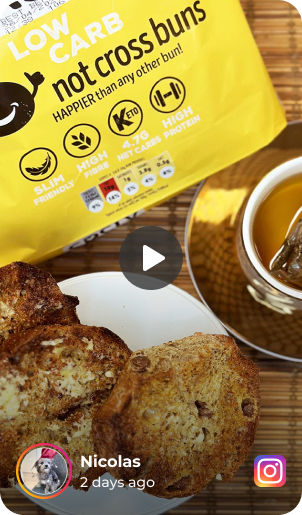;)




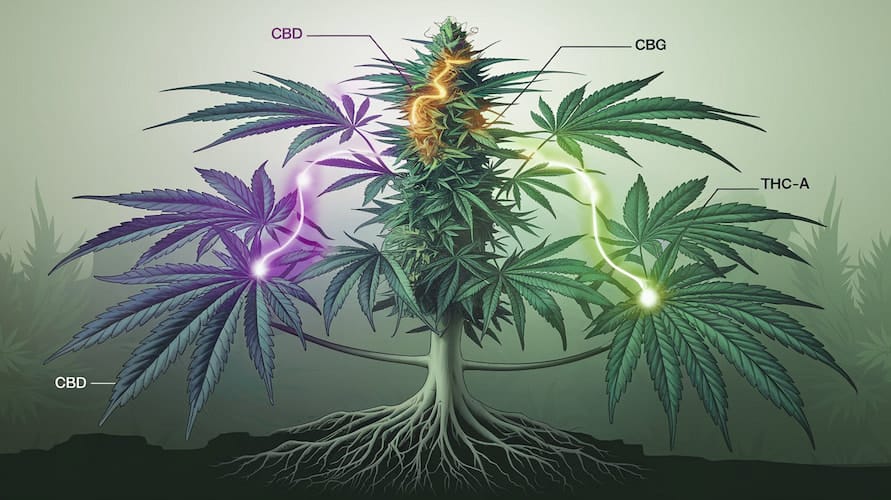
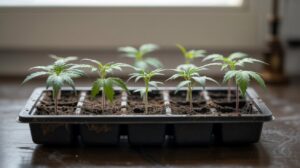
 14 Jul 2025
14 Jul 2025  5 min read
5 min read
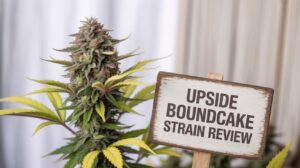
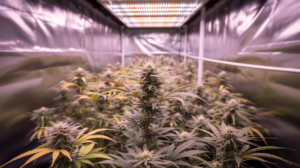
 December 06, 2024
December 06, 2024 


RESPONSES (0)
No responses yet. Be the first to respond!